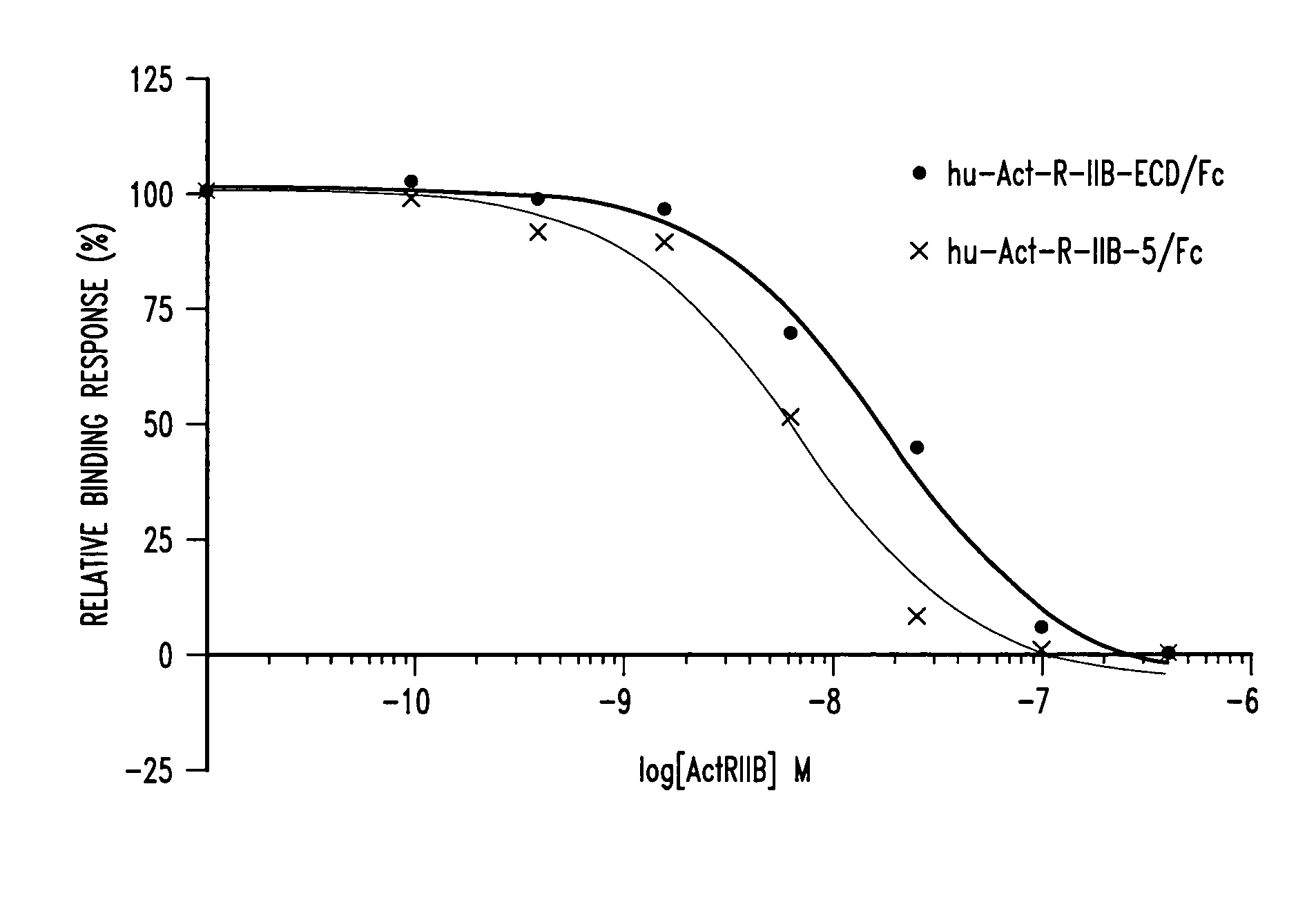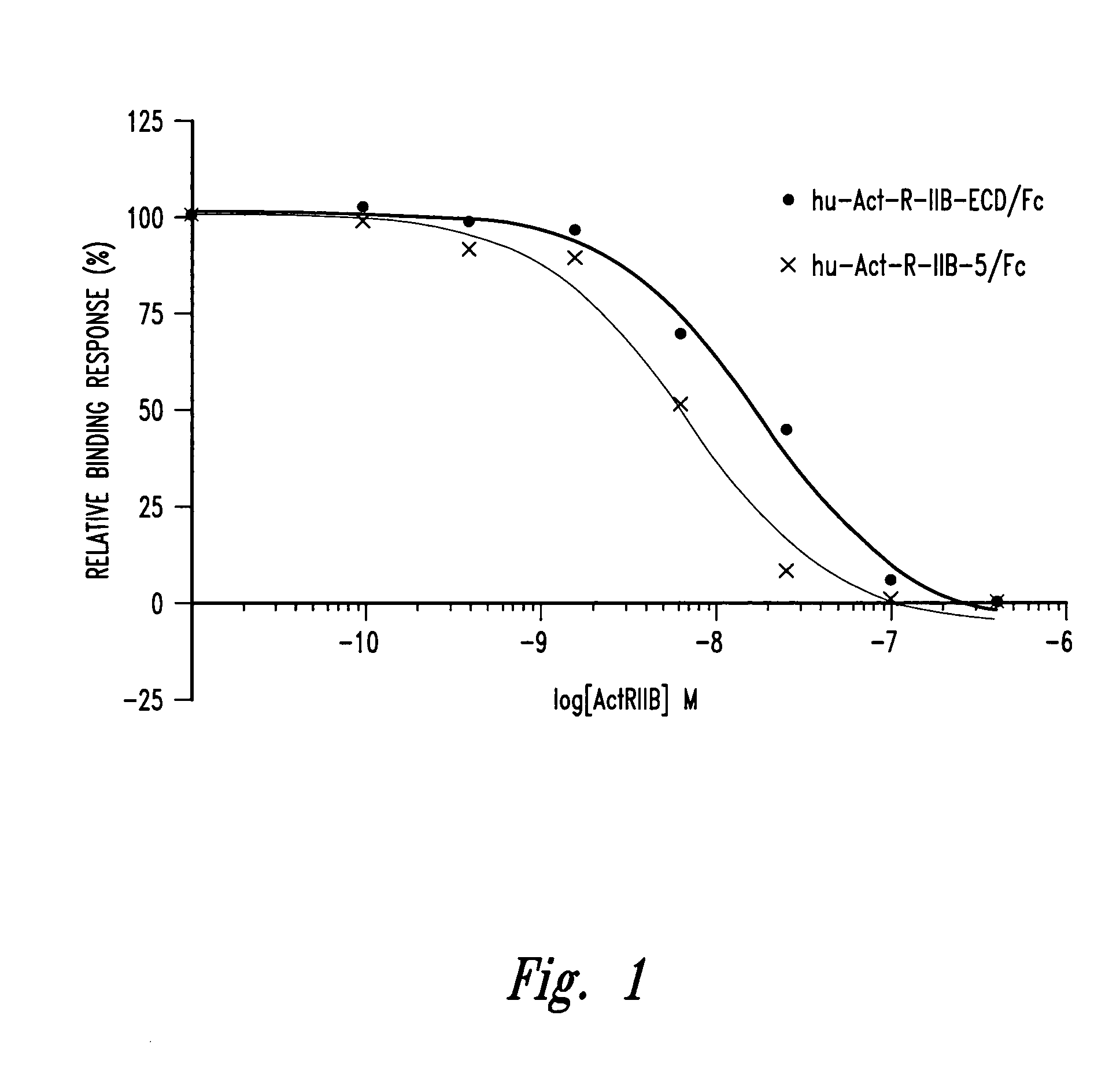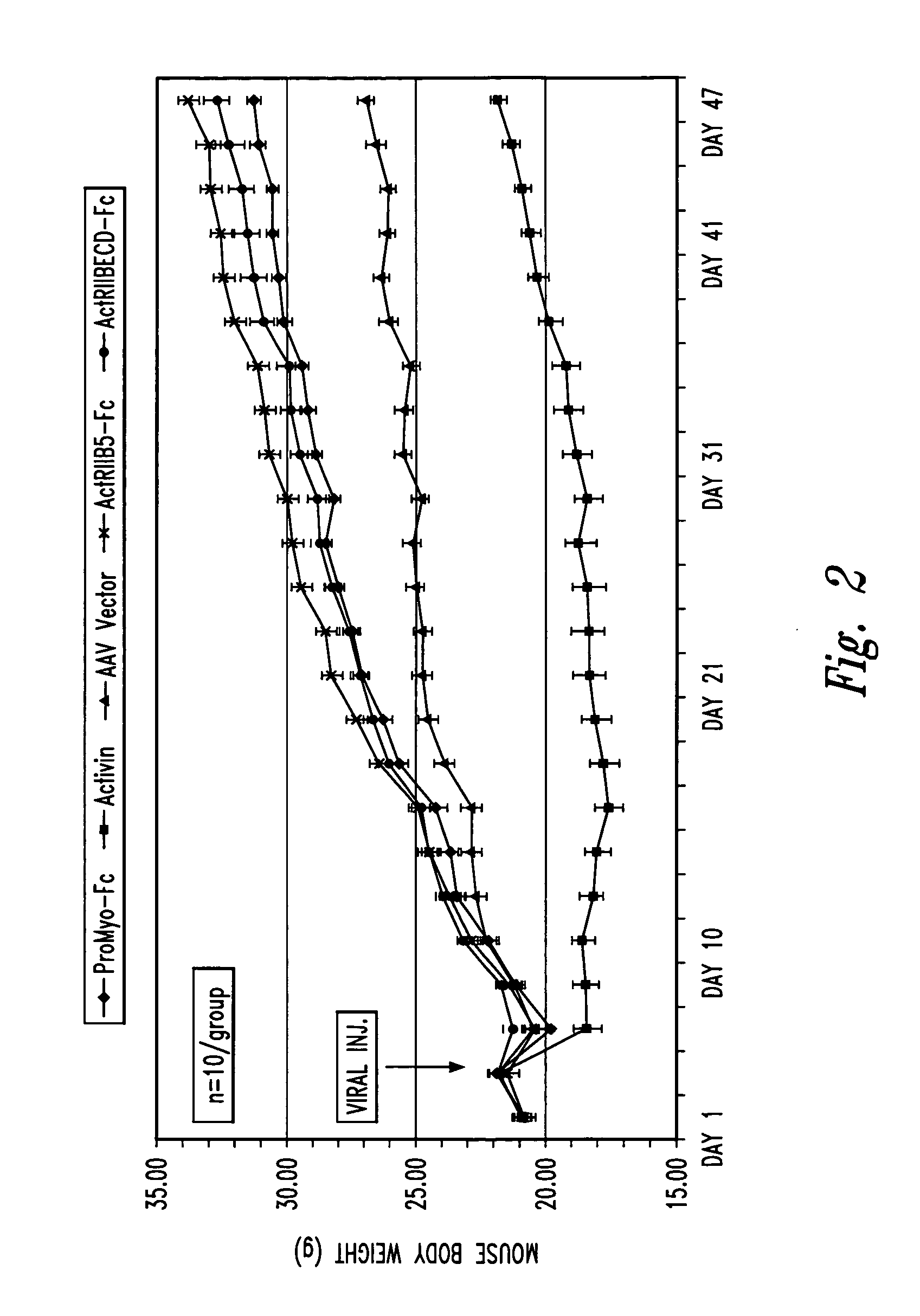Novel activin receptor and uses thereof
- Summary
- Abstract
- Description
- Claims
- Application Information
AI Technical Summary
Benefits of technology
Problems solved by technology
Method used
Image
Examples
example i
Isolation of cDNA and Expression in Cells
[0080] The cDNA of the novel human activin type IIB receptor was isolated from a cDNA library of human testis origin (Clontech, Inc.) according to the following protocol. Primers for the N-terminal and the C-terminal of the human activin IIB receptor (SEQ ID NO: 4) were generated and PCR was performed using these primers against templates from human cDNA libraries. PCT was performed using the GC-RICH PCR System (Roche, cat #2140306). Both N and C terminal PCR products were digested with PvuII / EcoRI and subcloned into pcDNA3.1-HisA vector (Invitrogen, Carlsbad, Calif.) to make a full length clone. After sequencing a number of PCR products, a cDNA clone from the human testes cDNA library was identified as a novel N-terminal splice variant receptor. The polynucleotide sequence of this receptor, designated human activin type IIB5 receptor (ActRIIB5). The cDNA clone of this receptor was missing 152 nucleotide bases that correspond to the entire E...
example 2
Expression of ActRIIB5
[0081] cDNA encoding ActRIIB5 was cloned into a mammalian pDC323 or pDC324 vectors (Bianchi et al, Biotech and Bioengineering, Vol. 84(4):439-444 (2003)) and expressed in a 293T cell line. To generate the Fc fusions, polynucleotides encoding the ActRIIB5 (SEQ ID NO: 1) were cloned adjacent to polynucleotides encoding the (Gly)8 linker sequence adjacent to polynucleotides encoding the human IgG1 Fc into a pDSRa vector (described in WO / 9014363, herein incorporated by reference). Polynucleotides encoding ActRIIB-ECD (amino acids 1-124 of SEQ ID NO: 5) were cloned adjacent to polynucleotides encoding the human IgG1 Fc into a pDSRa vector (no linker). These constructs were transfected into a stable CHO cell line. The soluble receptor-Fc fusions expressed were used for the side-by-side in vitro testing described below.
[0082] For the in vivo animal experiments described in Example 4 below, the PCR products generated as described above were digested with NheI / SalI an...
example 3
In Vitro Activities
[0083] HuActRIIB5 / Fc and HuActRIIB-ECD / Fc were generated as described above. The ability the ActRIIB5 receptor to inhibit the binding of each of the three ligands myostatin, activin A, and GDF-11 to the activin IIB receptor was tested using a cell based activity assay as described below.
C2C12 Cell Based Activity Assay
[0084] A myostatin / activin / GDF-11-responsive reporter cell line was generated by transfection of C2C12 myoblast cells (ATCC No: CRL-1772) with a pMARE-luc construct. The pMARE-luc construct was made by cloning twelve repeats of the CAGA sequence, representing the myostatin / activin response elements (Dennler et al. EMBO 17: 3091-3100 (1998)) into a pLuc-MCS reporter vector (Stratagene cat #219087) upstream of the TATA box. The myoblast C2C12 cells naturally express myostatin / activin / GDF-11 receptor activin receptor IIB on its cell surface. When myostatin / activinA / GDF-11 binds the cell receptors, the Smad pathway is activated, and phosphorylated Sma...
PUM
| Property | Measurement | Unit |
|---|---|---|
| Temperature | aaaaa | aaaaa |
| Temperature | aaaaa | aaaaa |
| Fraction | aaaaa | aaaaa |
Abstract
Description
Claims
Application Information
 Login to View More
Login to View More - R&D
- Intellectual Property
- Life Sciences
- Materials
- Tech Scout
- Unparalleled Data Quality
- Higher Quality Content
- 60% Fewer Hallucinations
Browse by: Latest US Patents, China's latest patents, Technical Efficacy Thesaurus, Application Domain, Technology Topic, Popular Technical Reports.
© 2025 PatSnap. All rights reserved.Legal|Privacy policy|Modern Slavery Act Transparency Statement|Sitemap|About US| Contact US: help@patsnap.com



